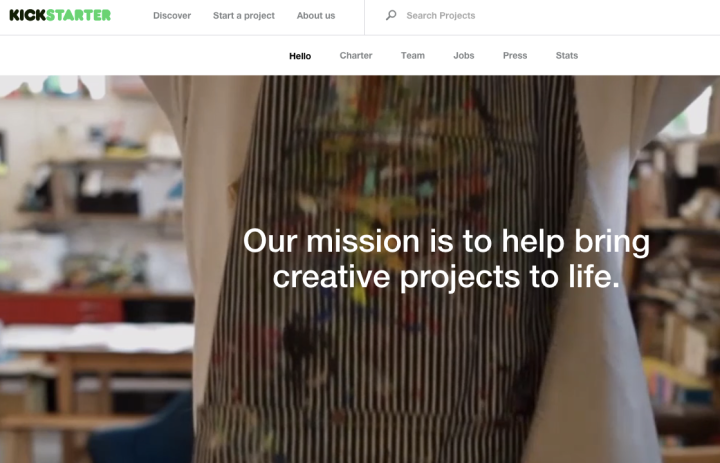
It’s a surprising move for the highly successful company that often serves as a jumping off point for companies that are, perhaps, less altruistically oriented. And in technology, an industry where a billion-dollar valuation and a million users seems to be everyone’s end goal, Kickstarter’s decision to become a public benefit corporation makes its mission and its values very clear — it’s not all about that coin.
“We don’t ever want to sell or go public,” Yancey Strickler, Kickstarter’s chief executive told the The New York Times, “That would push the company to make choices that we don’t think are in the best interest of the company.” Instead, Strickler and co-founder Perry Chen have made very clear what Kickstarter’s best interests are — in this case, helping bring creative projects to life, leveraging its unique position as crowdsourcers to aid the public. Under the public benefit corporation label, the company must include a socially responsible and impactful goal in its corporate charter, take public benefit into account in business decisions, and report on social impact.
Kickstarter’s homepage, which pays homage to the announcement, notes, “More and more voices are rejecting business as usual, and the pursuit of profit above all. Positive impact on society becomes part of a benefit corporation’s legally defined goals.” And in an email to its user base, the company said, “Radically, positive impact on society becomes part of a benefit corporation’s legally defined goals.”
Maintaining full transparency, Kickstarter has posted its benefit corporation charter for all to see, and it spells out a “specific list of values and commitments” by which the company will abide. “We renew our longstanding commitment to arts and culture. We declare how we plan to conduct ourselves in situations that are often swayed by profit motives. And we newly commit to donate 5 percent of annual post-tax profits to arts education and organizations fighting inequality,” Kickstarter promises, “Every year, we’ll release an assessment of how we’re performing on the commitments we’ve made.”
It is telling that “not a single dissenting vote” was made by a Kickstarter shareholder when the time came to make the decision about reincorporating as a benefit corporation. As an organization that is based on community, risk-taking, and a leap of faith for the public good, it comes as little surprise that the people behind the company found their own values similarly aligned with those of a PBC. “From Kickstarter’s inception,” the company says, “We’ve focused on serving artists, creators, and audiences to help bring creative projects to life. Our new status as a benefit corporation hard-codes that mission at the deepest level possible to guide us, and future leaders of Kickstarter.”


